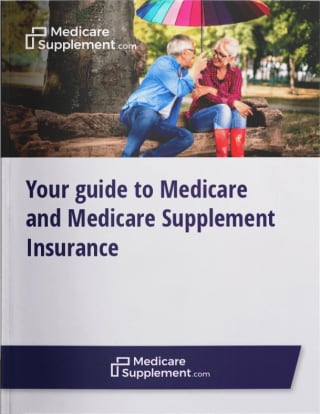Medicare Supplement Insurance (Medigap) plans do not cover prescription drug costs.
Medigap works alongside Original Medicare to help cover some of your medical costs, like copays and deductibles. However, while Medigap can help with certain out-of-pocket expenses, you may have to consider enrolling in Medicare Part D. Part D, or prescription drug plans (PDP), will help cover some of your prescription drug costs.
Prescription drug plans are standalone plans that work alongside your Original Medicare or Medigap plan.
If you have Medigap and need prescription drug coverage, you need to enroll in a PDP.

Why do I need a standalone plan?
Medigap no longer offers drug coverage with its plans, and you cannot have a drug plan for both Medigap and Original Medicare.
Before enrolling in Part D or Medigap, you must also be enrolled in either Medicare Part A or Part B. Neither of those plans offers coverage for prescription drugs. Ultimately, you can lower the overall costs of your prescription drugs by enrolling in Part D.
What if I don’t need any prescription drugs right now?
It could be a valuable and cost-efficient choice to consider enrolling in a prescription drug plan. In the case of you being prescribed a drug, having that coverage could help you save on out-of-pocket costs. Also, enrolling when you’re first eligible for Part D can help you avoid paying a penalty.
The Part D late enrollment penalty, which will be permanently added to your monthly premium, occurs if you enroll after your Initial Enrollment Period or after 63 (or more) consecutive days of not having any type of Medicare drug coverage.

How can you avoid this costly late penalty? Here are a few ways you can dodge it:
- Add Part D as soon as you can if you lose other creditable coverage – your plan is required to inform you of the credibility of your coverage each year. Credible coverage is when your benefits are at least the value of standard prescription drug coverage offered in Part D. So, it is best to stay on top of the status of your drug coverage to avoid losing it.
- Have records on hand for proof of previous creditable drug coverage – as a precaution, make sure you keep track of your previous coverage information to avoid a penalty at no fault of your own.
- Enroll when you are first eligible – perhaps the best way to avoid those pesky penalty fees. Even if you do not currently need a prescription drug plan, you may need it in the future. You can even find a plan that fits your budget at little to no monthly premiums.
If you are notified that you will have to pay a late penalty, don’t worry – you can appeal this with proof if you did have creditable drug coverage at some point.
All Medicare drug plans cover a wide variety of generic and name-brand drugs. Different types, or tiers, of drugs cause a price variation. There are plenty of ways to receive further assistance when covering drug costs.
If you have a low income, you may be able to pay lower monthly premium costs. With a program called Extra Help, you can have further assistance with premiums, deductibles and coinsurance costs. A licensed agent can help guide you as you choose the right drug plan option for you.
Find a Medicare drug plan that will cover your prescriptions – call 1-800-995-4219, TTY 711, 24/7.
We do not offer every plan available in your area. Any information we provide is limited to those plans we do offer in your area. Please contact Medicare.gov or 1-800-MEDICARE to get information on all of your options (TTY Users should call 1-877-486-2048 24 hours a day/7 days a week).



